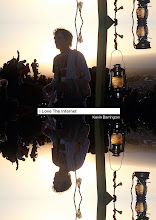The Lisbon Treaty poses a threat to Nato and undermines democracy by handing more power to Brussels, a former senior advisor to President George W Bush has warned.
http://www.telegraph.co.uk/news/worldnews/europe/2094840/John-Bolton-Lisbon-Treaty-will-undermine-democracy.html
John Bolton's Irish adventure
Why did the famous neocon and former UN ambassador take sides in Ireland's referendum?
-

- guardian.co.uk, Wednesday 18 June 2008 20.02 BST
- Article history
Some time ago I asked who needs Fox News when you have John Bolton? Well, the Irish referendum slightly reformulated the question around the man: who needs sovereign democracy when you have John Bolton?
There he was on June 8, declaring the Lisbon Treaty posed a threat to Nato and undermined democracy by handing more power to Brussels bureaucrats. It is worth noting that Ireland is not even a member of Nato – but only before asking what on earth he was doing, interfering in a process not relevant to him or his country?
A large part of the answer must be that the Bolton opinion apparently knows no bounds. The world was his stage as US ambassador to the UN, then it was taken away from him by his own people in the US Congress, since he only got the job in a recess appointment, snuck in by his mate the president. So he is now reduced to hawking his mindless opinions around any stage available.
But another part of the answer may be related to a slightly more problematic question: was there a US interest in the outcome of the Irish referendum? Again, a large part of the answer must be a resounding "no". The US is absorbed in itself even more than usual, since this is an election year. However, and notwithstanding, there are some persistent murmurs of a rightwing desire in the US to undermine the Lisbon Treaty, in an attempt to weaken the EU as a strong economic partner and a potential rival for world power.
Such murmurs would be worthy of a giggle, were it not for some questions that now emerge, related to Declan Ganley, head of Libertas, whicht fronted the "no" campaign in Ireland. He was apparently shopping around for a PR company in Brussels to help him with his task. This was a year ago, and it should show his abysmal ignorance of the EU in that all PR shops in Brussels make their living out of helping companies and clients interface with the union, not close it down, so he found little joy. But here is the crucial fact: he was directed to Brussels by the Washington offices of various PR consultancies. In other words, he had gone to Washington first. And that begs the question: why is an Irish entrepreneur seeking a lobbying company on an EU referendum in Washington?
For someone who claims to have made his fortune by his own wits – and someone who also claims to have decided to fight the Lisbon Treaty after reading through it to seek business opportunities – it is implausible to assume he did not know his own way to Brussels, or found out lobbying possibilities through his own Irish connections. One can only assume therefore that he started his quest in Washington because that was where his connections lay.
Ganley remains an enigma in Ireland – though much has been made of his company's contracts with US defence forces in Iraq. (That in itself is ironic, since one of his central claims was that Ireland would be forced into a – non-existent – EU army and become militarised if the Lisbon Treaty was passed.) But then again, many international companies supply the US military. Indeed, one of them is owned by Ulick McEvaddy, another Irish entrepreneur who heads Omega Air, a Texas-based company that offers commercial airborne refuelling of military aircraft. He is one of the very few known contributors to Ganley's organisation, for on the whole it remains totally unclear how Libertas was funded or by whom.
It also remains unclear why John Bolton felt the need, or authority, to comment upon a purely Irish – and possibly European – affair. Even with his vast ego, he cannot be accused of being stupid.
These are uncomfortable questions, which are in some ways on the sidelines of the Irish referendum – and in others right at its heart. For it was and remains about democracy and its workings. And to may observers, the referendum seems anything but democratic.
Much has been made about this being the third referendum to reject the treaty that was once the constitution – but it must also be said that it stands out as different, and not because of Ireland's size. For at base, in the previous two referenda, in France and the Netherlands, some of the major political parties expressed doubts and openly joined the "no" campaign. In Ireland this was adamantly not the case. All the elected political parties bar one – Sinn Fein – were in favour of the treaty.
Sinn Fein is also a legal and duly elected political party, but while Jonathan Powell has done a masterful job of portraying the positive traits of Gerry Adams, it has to be said that one definition of a nightmare was watching him last Friday preach to Europe about the merits of respecting legalities and democracy – closely followed by pictures of anti-abortionists spitting at the Irish Finance Minister when he was trying to speak on the Treaty.
At base therefore, there is a big question to ask: why is it more democratic to have the result of a referendum run by a bizarre alliance of Libertas, anti-abortionists and Gerry Adams decide the fate of the EU than ratification of the treaty by duly-elected governments?
To single-mindedly say: "Yes, it is so because the people have spoken," is to ignore that the people also spoke at the elections, in all EU member states. And those people empowered their governments to make decisions, including the ratification of treaties. Why is their will, and their system of government, less democratic?
To argue now that the people in other member states are being denied a right given to the Irish people is also daft: if one thing is clear, it is that no one voted on the substance of the treaty since no-one – from the prime minister of Ireland down to the youngest of voters – appeared to have read it. Indeed, its very complexity was one of the reasons given for the "no" vote.
One of the most basic issues behind discontent with the EU is the democratic deficit. Unfortunately the Irish referendum only increased concerns on this matter rather than clearly showing how EU decision making could be more democratic. For at the end of the day, respecting the will of the people must be an act encompassing the whole and not the part, and the part must show that they have voted for a clear issue rather than a mixed bag of single issue concerns melded into an unholy alliance and backed by mysterious funds.

No comments:
Post a Comment